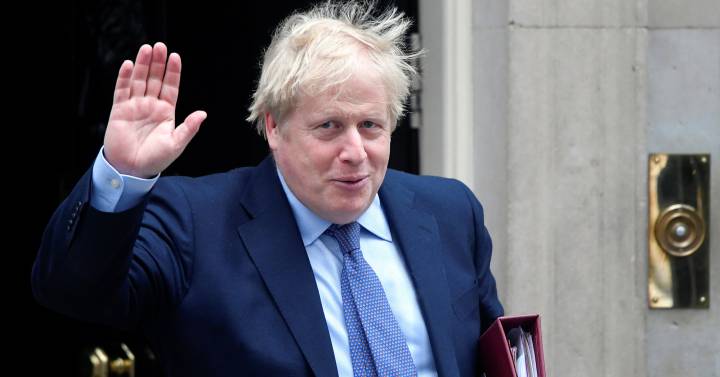Boris Johnson wants to avoid at all costs entering a maze of endless negotiations with Brussels and sum of extensions that ruined the mandate of his predecessor, Theresa May. The Government of the United Kingdom published on Thursday the base document with the aspirations of what should be, in its opinion, the future commercial relationship with the EU after the departure of the club last January. Both parties were given a transition period to close the agreement, which concludes on December 31.
"The Government will not extend the transition period established in the Withdrawal Agreement. In this way, there is a limited but sufficient time for the United Kingdom and the EU to reach an agreement. We are committed to working quickly and firmly, and in holding the appropriate number of high-level meetings designed by the Political Declaration [signed together with the Withdrawal Agreement] from now until June, "says the Downing Street document. If as of that date a sufficiently comprehensive and comprehensive draft of the will of the parties has not been reached, the text continues, the United Kingdom will decide whether it is worthwhile to remain at the negotiating table or prefer to concentrate on internal preparations for that there is an orderly exit from the EU at the end of the year.
London requires Brussels to allow it to negotiate a trade agreement similar to the one the EU has with Canada, and rejects the claim of the Community institutions to remain aligned with the club's rules on commercial, labor, environmental or state aid matters. Business. The Johnson Government also insists on regaining its "freedom of regulation" and refuses to submit future disputes to the discretion of the European Court of Justice. London accuses its hitherto partners of imposing much more "onerous" conditions than those demanded from other countries such as Canada, Japan or the United States.
The EU has already made it clear that the dimension of trade relations with the United Kingdom has nothing to do with those of Canada, and fears that the British will act from outside the club as an unfair partner. The greater the regulatory divergences, they have warned London, the less firm the ties between both parties. Brussels has offered its former Member State a future agreement free of tariffs or quotas, but requires a commitment to its regulatory structure. "Whatever happens, the Government of the United Kingdom will not negotiate any agreement that does not allow it to retain control over its own laws and political life. That means that we will not accept any obligation that our laws are aligned with those of the EU, or that the institutions of the European Union, including its Court of Justice, have any jurisdiction over the United Kingdom, "says the statement of principles signed by Downing Street.
Johnson and his government team defend before British public opinion the idea that the United Kingdom is already ahead of the EU in terms of environmental, labor or consumer protection, and that it is one of the countries in Europe that least helps Public is intended for private enterprise. It is a matter of good faith, they come to defend, that Brussels accepts the word and commitment of its future partner without greater demands, just as London would not impose extraordinary conditions on the EU countries. Behind the political arguments is the will of the Johnson Government to let deadlines run without showing signs of flexibility, to reach the end of the year the hard Brexit that the Eurosceptics who have helped the prime minister to reach the end of the year have been pursuing for a long time. power.
The United Kingdom also proposes that both fisheries reach agreements outside the general framework of the future treaty, in which the access and catch quotas are established each year in their respective waters. Brussels insists that fishing must be part of the final agreement.
In the services sector (insurance and finance), fundamental in the economy of the United Kingdom, London pursues an agreement of equivalence and reciprocity. "The United Kingdom and the EU have already pledged to carry out unilateral equivalence valuations, other than those envisaged in the future Free Trade Agreement [prefigured in the Political Declaration]. The fact that the United Kingdom leaves now the European Union with those same norms already in force provides a firm basis for elaborating these complete valuations of equivalences before the end of June 2020, "says the Downing Street negotiating team in its text.
The Government of the United Kingdom has already prepared in 2018 an analysis of the consequences of an agreement with the EU similar to that of Canada for the British economy. It was then concluded that the country's gross domestic product (GDP) could suffer a 5% decline within 15 years. Johnson and his team have so far refused to publish their own future estimates regarding the type of pact they pursue with the EU, but do not give their arm to twist, and have already begun to indicate to British companies to prepare to adjust its businesses to an environment more similar to the general one established by the rules of the World Trade Organization than to a detailed trade agreement with Brussels.




/cloudfront-eu-central-1.images.arcpublishing.com/prisa/XOLNQZEABBFD3OYUIV67LYTLL4.jpg)
/cloudfront-eu-central-1.images.arcpublishing.com/prisa/AMBABVJIZHEE6NLMK73CXTWI5I.jpg)







